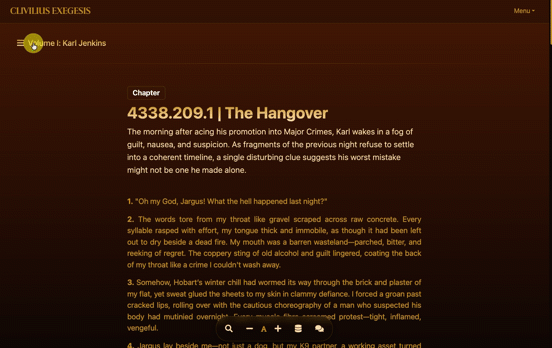How to explore the Exegesis?
You begin your journey in the Library — the quiet heart of Clivilius. Here, you’ll find a growing collection of Volumes, each centred around a key figure, moment, or moral tension in Clivilian memory. Whether it’s the fractured inner world of Karl Jenkins, the contested ethics of The Opportunity, or the quiet disintegration of The Hangover, each volume invites you to enter not just a story, but a space of layered reflection.
Within each volume, you’ll first encounter Chapters drawn from the Clivilian Journals — narrative records, reconstructed moments, or testimonial fragments. Around these are arranged a constellation of texts: Exegeses, written by fictional Clivilians known as Exegetes, offering interpretive reflections grounded in the Guiding Principles; Symposiums, where multiple voices enter dialogue and disagreement; and Related Materials from the Clivilius Encyclopædia, including artefacts, casefiles, and cultural documents. These are not arranged by time, but by resonance. What unfolds is not a timeline, but a web of memory — a structure that invites you to read slowly, reflect deeply, and follow meaning wherever it leads.
